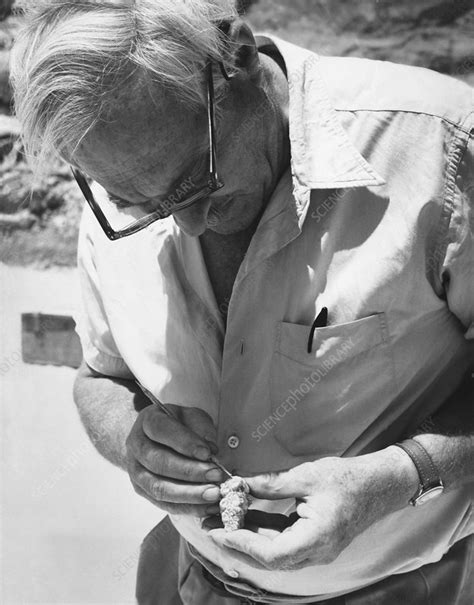A Quote by P. D. James
Of the four billion life forms which have existed on this planet, three billion, nine hundred and sixty million are now extinct. We don't know why. Some by wanton extinction, some through natural catastrophe, some destroyed by meteorites and asteroids. In the light of these mass extinctions it really does seem unreasonable to suppose that Homo sapiens should be exempt. Our species will have been one of the shortest-lived of all, a mere blink, you may say, in the eye of time.
Quote Topics
Asteroids
Been
Billion
Blink
Catastrophe
Destroyed
Does
Exempt
Existed
Extinct
Extinction
Eye
Forms
Four
Homo Sapiens
Hundred
Know
Life
Life Forms
Light
Lived
Mass
Mass Extinction
May
Mere
Million
Natural
Nine
Now
Our
Planet
Really
Sapiens
Say
Seem
Shortest
Should
Sixty
Some
Species
Suppose
Three
Through
Time
Unreasonable
Wanton
Which
Why
Will
Related Quotes
With respect to phenomena like mass extinction, somebody might say why worry about it because in a geological perspective mass extinctions aren't so bad, they wipe out some things and then 10 million years down the road we get new and interesting objects.But I tell you mass extinctions are really awful for folks caught in the midst of them.
We have come to look at our planet as a resource for our species, which is funny when you think that the planet has been around for about five billion years, and Homo sapiens for perhaps one hundred thousand. We have acquired an arrogance about ourselves that I find frightening. We have come to feel that we are so far apart from the rest of nature that we have but to command.
A billion homo sapiens are added every 11 years to the planet. The hypertrophy of a single species pushes other life-forms out of bed and into extinction. The decline of biological diversity is real and severe. The alarming loss of soil fertility, forest cover, and coral reef viability and the release of fossilized CO2 that nature put away 300 million years ago in its march toward greater diversity - all these "losses" and many others are the result of one life-form annihilating other life-forms in its immoral confusion of "dominion" with "domination."
The humanity and the humility, which are very different than the biological species homo sapiens. Humanity versus homo sapiens - very different things. We are biological creatures, we are animals, no doubt, but when you talk about "humando," you're talking about that particular kind of animals who are aware of their impending extinction, who have the capacity to be sensitive to catastrophe and disaster and calamity and profound crisis.
The technology involved in making anything invisible is so infinitely complex that nine hundred and ninety-nine billion, nine hundred and ninety-nine million, nine hundred and ninety-nine thousand, nine hundred and ninety-nine times out of a trillion it is much simpler and more effective just to take the thing away and do without it.
The planet earth has a life span of eight billion years, give or take a few million. People have been around for approximately forty thousand years-a virtual blink in the cosmos. It is sad that we as a species are ravaging the natural world so fast that we are jeopardizing our survival. If we wipe ourselves out, it would be the height of folly, but the earth will survive even us. It will eventually restore itself. It might take a few thousand years, and it won't be just as it was before, but its life is stronger than death.
There is evidence that we are headed into what would be the planet's sixth mass extinction. It's hard to know for sure if you're in one because a mass extinction is an event where over 75 percent of the species on the planet die out over a - usually about a million-year period. The fastest it might happen is in hundreds of thousands of years.
Our planet has been around only for four and a half billion years. Let's imagine a planet that has life on it such as life is on Earth and it's seven billion years old. Let's say that planet evolved intelligence. Well, that intelligence would be way more advanced than what we call intelligence here on Earth. How long has intelligence been around on Earth as we've come to define it?







































